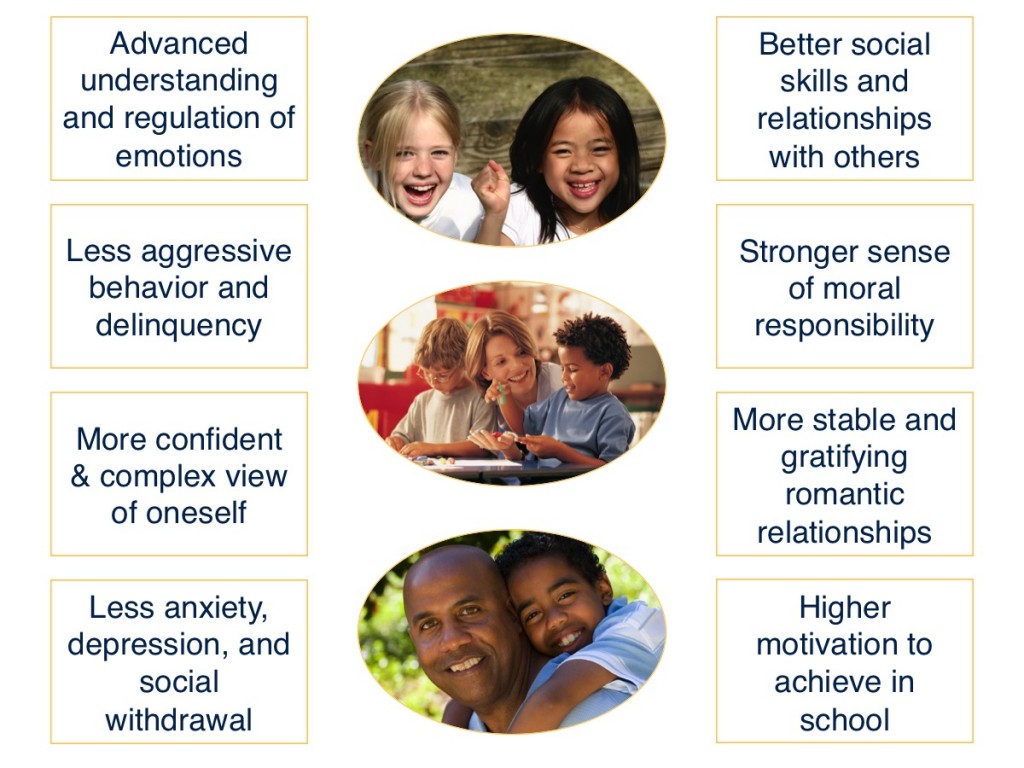
We have discussed how attachment can influence children as infants. But how does early attachment affect people later in life? Researchers have found a strong relationship between early attachment and future outcomes. Infants who have a history of secure attachment relationships had much better outcomes than infants who have less secure relationships. For example, infants who have a history of secure relationships go on to have better relationships with teachers and peers. They had a better understanding of emotions. They also grew up to have more confident and complex beliefs about their abilities, traits, and values. They showed less anxiety, depression, and social withdrawal. They had lower aggressive behavior and better social skills. They were also more motivated to achieve in school. Why might children with a history of secure attachments fare better?
Children with a history of secure attachments might have more positive expectations about relationships. That is, they perceive themselves as loved and worthy of that love. Those children tend to grow up knowing they will receive support from others. This helps them adjust to different social situations, and succeed. Also, sensitive caregivers are setting an example for their children. Children are likely to learn how to regulate and express their emotions in an acceptable way. This helps them develop positive relationships and work out conflict in a constructive manner.
-
- Attachment
- the lasting emotional bond that forms between infants and their primary caregivers
- Proximity maintenance
- a child stays close to an attachment figure for comfort and protection
- Safe haven
- an attachment figure provides comfort and safety when a child feels unsure
- Secure base
- an attachment figure’s presence gives a child the confidence to explore her environment
- Separation distress
- a child experiences stress or anxiety when an attachment figure leaves